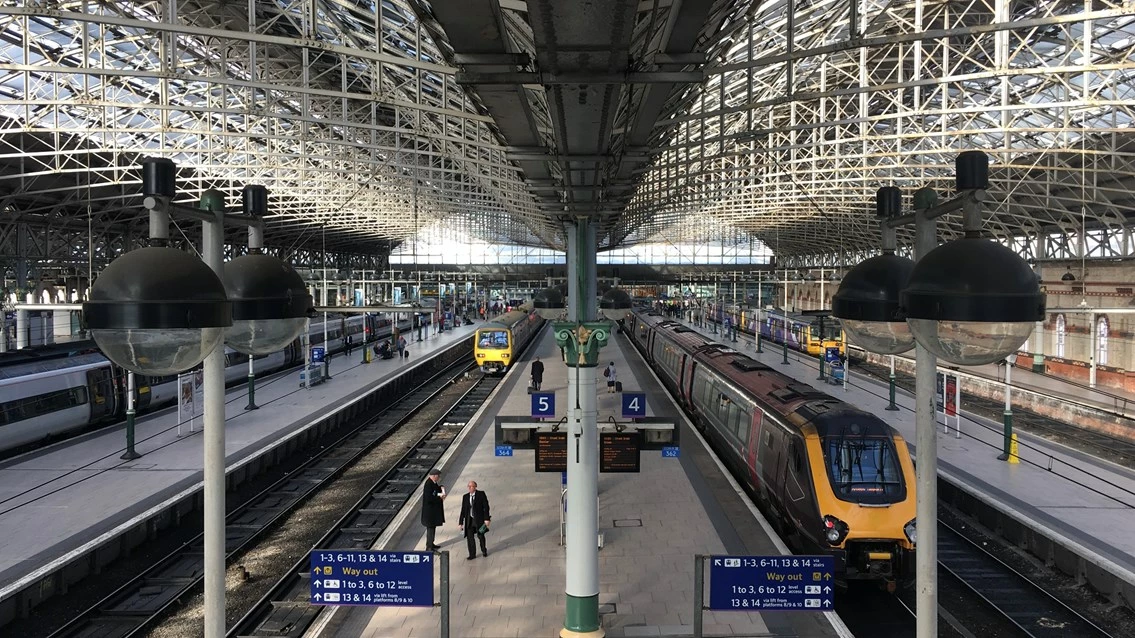
Partner Article
Infrastructure investment key to delivering Boris’ one nation conservatism
Early Friday morning at a conference hall in London, in front of a lectern emblazoned with ‘The People’s Government’, Boris Johnson delivered his victory speech. Making the case that his historical mandate now comes with new responsibilities, he said: “We must recognise the incredible reality that we now speak as a one-nation Conservative Party literally for everyone from Woking to Workington, from Kensington – I’m proud to say – to Clwyd South, from Surrey Heath to Sedgefield, from Wimbledon to Wolverhampton.” “And as the nation hands us this historic mandate we must rise to the challenge and to the level of expectations… Let’s unite this country, let’s spread opportunity to every corner of the UK, with superb education, superb infrastructure, and technology.”
More than rhetorical flourish, his speech reflects the new political reality in Westminster. With the strong majority and geographic reach the party now has, a newfound and perhaps unexpected responsibility to truly appeal to all, while delivering growth across the nation, now rests on his shoulders.
Infrastructure investment is the key to unlocking this economic potential – over 30% of the economy is reliant on the built environment to be productive. It is the foundation which can unlock jobs and further growth. It kick-starts virtuous economic cycles and lubricates ongoing activity. Major projects can help to better redistribute wealth more evenly across England, Wales and Scotland, unlock new opportunities and ensure we have infrastructure which is fit-for-a 21st century-purpose.
In practice, this means tangible progress on HS2 to connect the Midlands, before starting work on National Powerhouse Rail to unify the major economic hubs of the North into one. It means a national programme of social infrastructure investment – the new hospitals and schools promised by the campaign. It means modern and best-in-class digital infrastructure to unleash entrepreneurialism. For all of this to be as effective as possible, more devolution will be needed to enable local decision-making to tailor its delivery to local needs, i.e. more power to the North West.
Most importantly, it means finally dealing with the housing crisis. Not by throwing yet more targets around, but by exploring, with the industry, the tangible and common-sense ideas to actually make progress on an issue that has been at the forefront of politics for nearly two decades. These include making use of placemaking principles to design and build houses and communities that people want to live in, encouraging brownfield development, and enabling councils to build the social housing that is needed.
On a long-term political level, it also makes sense. In 2024, without the unifying factors of Brexit and an unelectable Corbyn, Johnson will need to find something else with which to keep his first-time voters in the Midlands and the North on his side. An ongoing programme of national infrastructure investment, coupled with local decision-making, which delivers economic and social growth for the country as a whole, can be just that. It should become the glue which binds his one nation conservatism together.
Hannah Vickers is chief executive of the Association for Consultancy and Engineering (ACE) which represents the businesses large and small which design and deliver our national infrastructure.
This was posted in Bdaily's Members' News section by Hannah Vickers .








 Raising the bar to boost North East growth
Raising the bar to boost North East growth
 Navigating the messy middle of business growth
Navigating the messy middle of business growth
 We must make it easier to hire young people
We must make it easier to hire young people
 Why community-based care is key to NHS' future
Why community-based care is key to NHS' future
 Culture, confidence and creativity in the North East
Culture, confidence and creativity in the North East
 Putting in the groundwork to boost skills
Putting in the groundwork to boost skills
 £100,000 milestone drives forward STEM work
£100,000 milestone drives forward STEM work
 Restoring confidence for the economic road ahead
Restoring confidence for the economic road ahead
 Ready to scale? Buy-and-build offers opportunity
Ready to scale? Buy-and-build offers opportunity
 When will our regional economy grow?
When will our regional economy grow?
 Creating a thriving North East construction sector
Creating a thriving North East construction sector
 Why investors are still backing the North East
Why investors are still backing the North East